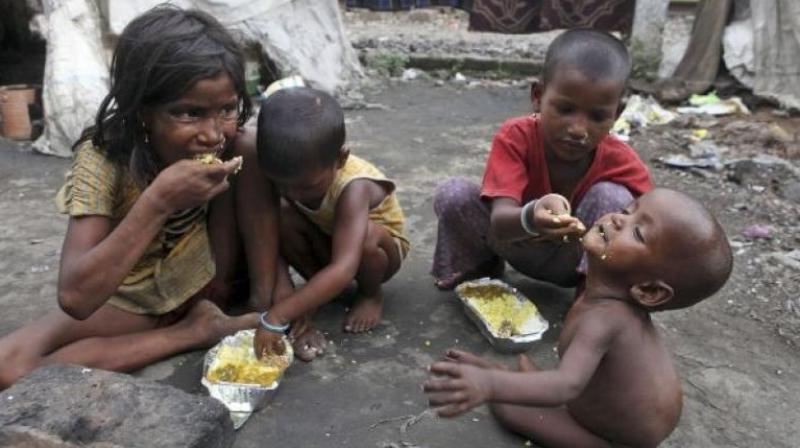'Nutrition gardens' provide balanced diet in Chhattisgarh schools
Concept developed by Krishi Vigyan Kendra at Kanker, in Naxal-hit Bastar region.;

Bhopal: Chhattisgarh has developed an innovative way to combat malnutrition among children by conceptualising “nutrition gardens” in schools in the state to provide balanced diet to students in midday meal.
The concept of “nutrition garden”, developed by the Krishi Vigyan Kendra (KVK) or Agriculture Science Centre at Kanker in Chhattisgarh’s Naxal-hit Bastar region, has been highly appreciated by the Centre which has recommended other states to follow the model, a spokesman of Indira Gandhi Agriculture University (IGAU) at Raipur in Chhattisgarh told this newspaper on Friday.
“The model, developed to ensure uninterrupted supply of nutritious food to students in schools in midday meal round-the-year, has been found successful in combating malnutrition to some extent among school children”, spokesman of IGAU Sanjay Nayar said. The ‘nutrition garden’ concept, the brain child of the agriculture scientist of KVK, Kanker, Dr Birbal Sahu was first implemented in ten schools run by Chhattisgarh government in tribal-dominated Kanker district in 2015-16 on experimental basis. The model was later implemented in 30 other state government schools in the district.
“The evaluation of impact of the model was quite encouraging. We have now made it mandatory for the schools in the state which have boundary walls to develop ‘nutrition garden,” he added.
Nutrition gardens have been developed in around 10,000 out of total 44,500 high schools in Chhattisgarh in the last one and half years”, additional director in directorate of public instruction (DPI), Chhattisgarh, Maheswar Nayak, told this newspaper.
The Chhattisgarh government has set a target to develop ‘nutrition gardens’ in around 20,000 high schools in the current financial year, he indicated.
Particular varieties of seasonal vegetables and fruits, found to be rich in vitamin, minerals, amino acid, and fiber, have been identified for plantation in the ‘nutrition garden’.
At least 300-500 square meters of area has been earmarked in each school for development of ‘nutrition garden’ and an amount of Rs 10,000 has been sanctioned for developing each such kitchen garden, Mr Nayar said.
The species identified for ‘nutrition garden’ are leafy plants with rich iron contents, carrot, cauliflower, tomato, lady finger, papaya, drum stick, pomegranate, lemon and mangoes.
According to latest data of NITI Ayog, around 37.60 children in Chhattisgarh are suffering from malnutrition.

